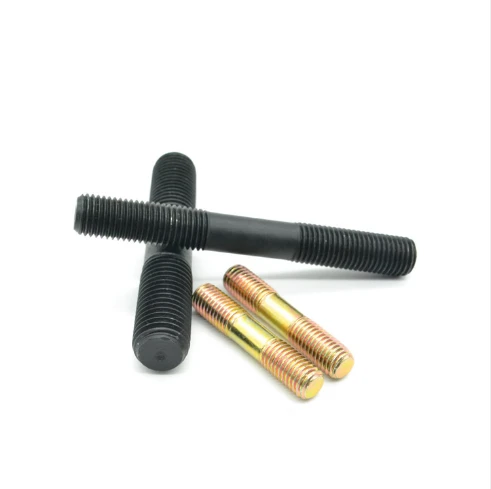stainless steel socket head cap screws suppliers
Dec . 03, 2024 18:04 Back to list
stainless steel socket head cap screws suppliers
The Importance of Stainless Steel Socket Head Cap Screws and Finding Reliable Suppliers
In the world of manufacturing and construction, the choice of fasteners can have a significant impact on the durability and reliability of an entire project. Among the various types of fasteners available, stainless steel socket head cap screws stand out for their strength, aesthetic appeal, and corrosion resistance. As industries continue to evolve, the demand for high-quality stainless steel socket head cap screws has surged, making the role of suppliers pivotal in ensuring that businesses can obtain the materials they need.
Understanding Stainless Steel Socket Head Cap Screws
Stainless steel socket head cap screws are distinguished by their cylindrical heads, which are typically designed for use with an Allen wrench or hex key. The design not only makes them easy to install but also allows for high torque application without the risk of damaging the screw. Made from stainless steel, these screws exhibit excellent resistance to rust and corrosion, making them suitable for various environments, including marine applications and industries that handle chemicals.
The composition of stainless steel often includes elements like chromium, nickel, and molybdenum, which enhance the material's properties. For instance, the high chromium content provides a protective layer against oxidation, while nickel imparts toughness and ductility. This unique combination allows socket head cap screws to maintain their strength and appearance even in harsh conditions, ensuring longevity and reliability.
The Demand for Quality Suppliers
As the need for stainless steel socket head cap screws continues to grow, sourcing these fasteners from reliable suppliers becomes increasingly important
. Quality suppliers not only provide high-grade materials but also ensure that their products meet industry standards. When businesses choose to work with dependable suppliers, they can expect consistency in product quality, timely deliveries, and support for any technical inquiries.One of the essential factors to consider when evaluating suppliers is their manufacturing processes. Suppliers that utilize advanced manufacturing techniques are more likely to produce screws that meet the rigorous demands of various applications. Certifications, such as ISO 9001, can also indicate that a supplier adheres to international quality management standards.
Finding the Right Supplier
stainless steel socket head cap screws suppliers

When searching for stainless steel socket head cap screw suppliers, businesses should take several steps to ensure they make an informed choice
1. Research and Reviews Conduct thorough research online to identify reputable suppliers. Customer reviews and testimonials can provide insights into product quality and supplier reliability.
2. Product Range Evaluate the range of products offered by potential suppliers. A supplier who stocks a variety of sizes and specifications can be more advantageous, as it allows businesses to source all their fastening needs from one location.
3. Customer Support Consider the level of customer support provided by the supplier. Reliable suppliers should offer assistance with product selection and technical questions to ensure customers make the right choices.
4. Pricing and Minimum Order Quantities While price is a crucial factor, it should not be the only consideration. Compare pricing among different suppliers while also factoring in the quality and service levels. Also, check if there are minimum order requirements that might impact small businesses.
5. Delivery Times Prompt delivery is vital for project timelines. Suppliers that demonstrate efficiency in their logistics will be invaluable partners to businesses relying on timely project completion.
Conclusion
Stainless steel socket head cap screws are an integral part of many industries, thanks to their durability and corrosion resistance. As demand increases, finding a reliable supplier becomes paramount. Businesses that invest time in researching and selecting quality suppliers can ensure they have access to the best materials, ultimately leading to successful and sustainable projects. By prioritizing quality, support, and reliability, companies can forge strong partnerships with their suppliers and secure their position in competitive markets.
Latest news
-
High-Quality Panel Stud Bolt Reliable Panel Stud Bolt Factory & Suppliers
NewsJul.08,2025
-
High-Precision Fine Thread Locknuts Manufacturer & Supplier Custom Solutions
NewsJul.08,2025
-
PH Imperial Stud Bolt – High Strength Fasteners from Leading Supplier & Factory
NewsJul.07,2025
-
High-Quality Allen Wrench Bolts Leading Factory, Company & Suppliers
NewsJul.07,2025
-
Wholesale Ball Stud Bolt - High Quality Supplier & Factory Price Reliable Wholesale Ball Stud Bolt Company
NewsJul.06,2025
-
High-Strength Alloy Bolts Manufacturer & Supplier Quality Alloy Fasteners Factory
NewsJul.06,2025
